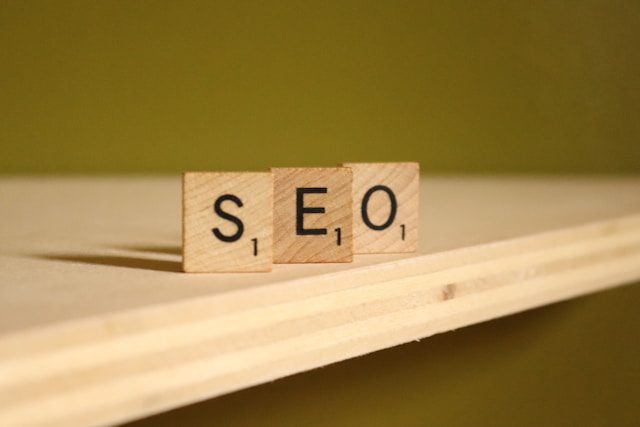In today’s digital marketplace, visibility is everything. When a customer searches for your service or product online, they’re more likely to engage with the first few results on Google. Search Engine Optimisation, commonly known as SEO, is the art and science of getting your website to appear in the top search engine results.
If you’ve ever wondered what SEO means or how it can transform your business, this guide breaks down the definition, strategies, and long-term benefits of optimising your online presence.
Understanding SEO and How It Works
The SEO definition
SEO, or Search Engine Optimisation, refers to the process of improving a website’s visibility in organic (non-paid) search results. It involves enhancing your site’s technical performance, structure, and content so search engines like Google can understand, index, and rank it effectively.
Put simply, SEO helps your business appear when potential customers are searching for relevant terms. Whether someone types “best coffee machine NZ” or “roofing contractors in Auckland,” strong SEO ensures your website is the answer they find.
The three pillars of SEO
When we think about what is SEO, success relies on a balance of three main areas:
- On-page SEO – Optimising elements within your website, such as headings, keywords, meta tags, and internal linking.
- Off-page SEO – Building authority through backlinks, social signals, and citations from reputable external sites.
- Technical SEO – Ensuring your site loads quickly, is mobile-friendly, and has a clean, crawlable structure for search engines.
Each component works together to strengthen your digital footprint and attract high-quality, relevant traffic.
Why SEO Matters for Your Business
Visibility where it counts
Over 75% of users never go past the first page of search results. If your business isn’t ranking high, you’re invisible to the majority of potential customers. SEO gives your brand the visibility it deserves by ensuring your site is found where customers are already looking.
Building trust and credibility
Websites that rank well are seen as more credible. SEO enhances brand reputation by enhancing user experience, site speed, and mobile performance, all of which impact how customers perceive your business.
Long-term, cost-effective results
Unlike paid advertising, SEO builds momentum over time. A well-optimised site continues to generate leads and conversions long after the initial work is done, providing exceptional long-term return on investment.
How Search Engines Rank Websites
Search engines use complex algorithms to determine which websites best answer a user’s query. Factors include:
- Relevance of content to the search term (and user intent)
- Site structure and user experience
- Mobile responsiveness
- Page speed
- Quality and quantity of backlinks
- Secure HTTPS connection
Optimising for these signals is part of our SEO definition and helps search engines understand your content, and ensures you appear in front of the right audience.
SEO is more than just ticking boxes. It’s about aligning technical precision with strategic content that connects your business to the world.
Core SEO Strategies for Strong Rankings
Keyword research and intent
Effective SEO starts with understanding what your customers are searching for. Keyword research identifies the words and phrases most relevant to your business and audience. By matching your content to search intent – informational, navigational, or transactional – your website becomes more visible to qualified leads.
On-page optimisation
Optimising each page with relevant keywords, clear structure, internal links, and engaging copy ensures that both users and search engines understand your message. Regularly updating meta titles, descriptions, and headings keeps your content fresh and competitive.
Technical optimisation
Behind every high-ranking site is strong technical SEO. This includes improving site speed, ensuring mobile responsiveness, submitting sitemaps, and fixing crawl errors. A technically sound site is easier for Google to index and provides a smoother user experience.
Content creation and link building
Quality content is the cornerstone of SEO. Publishing informative blogs, case studies, and guides builds authority and earns backlinks, which demonstrate to Google that your site is trustworthy and credible. Well-planned content and authentic link building work together to establish your site’s reputation.
Local SEO: Connecting with Your New Zealand Audience
Local SEO focuses on targeting nearby customers who are ready to make a purchase. This strategy is crucial for businesses operating within specific regions, such as Auckland, Wellington, or Christchurch.
It involves optimising your Google Business Profile, collecting reviews, and including localised keywords. With 46% of all Google searches seeking local information, appearing in location-based results can significantly increase leads.
Local SEO helps your business stand out in its area, drive more foot traffic, and connect with customers who are already searching for what you offer.
SEO and Web Design: A Perfect Partnership
SEO and web design are closely intertwined. Even the best-optimised content will underperform if your website design is outdated or clunky. A seamless user experience encourages longer visits and higher engagement, both of which signal relevance to search engines.
A well-designed site should:
- Load quickly
- Be mobile responsive
- Use intuitive navigation
- Contain compelling, optimised visuals
When SEO and web design work together, they create a seamless digital experience that effectively attracts, engages, and converts users.
The Benefits of Working with an SEO Agency
Expert insight and strategy
Partnering with an experienced SEO agency ensures every element of your site supports your business goals. Agencies combine in-depth technical knowledge with creativity to deliver measurable results.
Continuous monitoring and reporting
SEO isn’t static; algorithms evolve constantly. A reliable agency will provide ongoing monitoring, performance reports, and optimisation, keeping your business ahead of changes.
Integration across all marketing channels
Effective SEO doesn’t exist in isolation. It works best when integrated with digital marketing, web development, and content creation for cohesive, high-impact results that align with your overall strategy.
Common SEO Mistakes to Avoid
- Ignoring mobile optimisation – most searches now happen on smartphones.
- Overusing keywords – keyword stuffing harms rankings and user experience.
- Neglecting content updates – outdated content loses relevance quickly.
- Forgetting about local SEO – without location targeting, you miss nearby customers.
- Skipping analytics – without data, you can’t measure or improve performance.
Avoiding these missteps keeps your SEO strategy efficient and effective.
The Future of Search Engine Optimisation in New Zealand
Search Engine Optimisation continues to evolve with advances in AI, voice search, and user experience. Google now prioritises intent and quality over keyword density, rewarding businesses that deliver real value.
In New Zealand, the future of SEO lies in authenticity, accessibility, and alignment with user needs. Local businesses that invest in consistent, high-quality optimisation will remain visible and competitive as digital behaviour shifts.
Ready to Grow Your Business with SEO?
SEO is more than a ranking exercise; it’s the foundation of a strong online presence. From technical performance to content strategy, every element works together to attract, engage, and convert your ideal audience.
If you’re ready to unlock your website’s potential, we can help. Our expert Search Engine Optimisation services combine technical precision, creative strategy, and data-driven insight to help your business achieve measurable, lasting results.
Contact The Web Guys today to start building your path to the top of search engine results.







